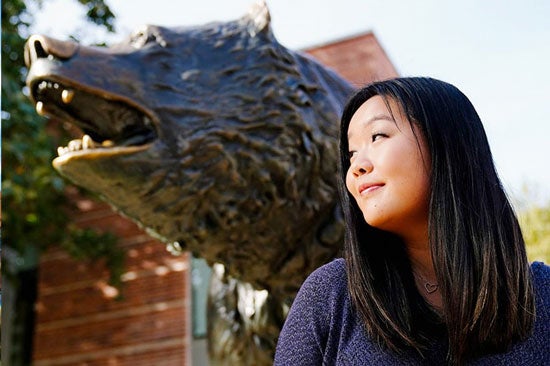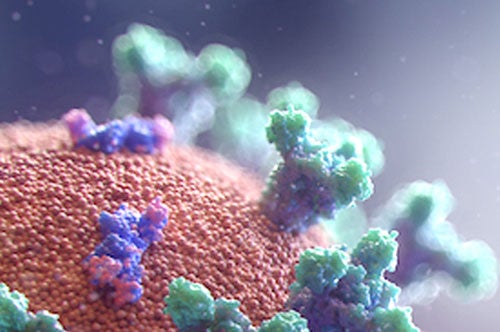
Quarantine and contact tracing
It is likely that some students, faculty or staff living or working on campus will test positive for COVID-19 at some point during the fall term. To protect the health of both infected individuals and the rest of the campus community, isolation, contact tracing and quarantine protocols are in place, as outlined below.
For students, the prospect of missing class time, projects or assessments due to isolation or quarantine can be daunting. Please know that your instructors understand the situation and are committed to accommodating students who cannot be in class through video or audio streaming or recordings, makeup assignments, alternative projects, or other means.
Students needing to isolate or quarantine are encouraged to notify their course instructors as soon as possible and explain their circumstances. If an instructor requires a medical note, students can visit the Arthur Ashe Student Health & Wellness Center’s patient portal, and select medical excuse option under “Messages.”
Isolation
Members of the campus community who test positive for COVID-19 or who are symptomatic and awaiting test results will be required to isolate, either at home (for employees and off-site students) or on campus (for on-site students). Individuals who are isolating cannot have visitors and should only leave their isolation location to receive medical care.
For those who test positive, the isolation period typically lasts 10 days from the date of the positive test or the onset of symptoms, although it can extend longer if the person has a severe infection or is immunocompromised.
UCLA will identify appropriate housing for students living on campus who need to isolate, and these students should bring along enough personal belongings — including clothing, medication, laptops, phones, chargers and school supplies — to last for at least 10 days. UCLA will continue to monitor students’ health, and staff will arrange for meal delivery three times a day.
Students, faculty or staff isolating in privately owned off-campus residences should remain in a private room with a private bathroom, if possible, and arrange for meals and other essential needs.
Contact tracing
When a student or faculty or staff member tests positive, UCLA will perform a case investigation and contact tracing, identifying and notifying all individuals considered to be close contacts of the infected person — meaning they were within 6 feet of the person for more than 15 minutes over a 24-hour period. These close contacts will then be instructed on whether they need to test and/or quarantine.
Sometimes individuals not notified by contact tracers may know they have been in close contact with an infected person, either on or off campus. In that case, they should call the UCLA Ashe COVID Hotline at 310-206-6217 (for students) or the UCLA COVID Call Center at 310-267-3300 (for faculty and staff) for instructions.
Quarantine
Quarantine is often necessary for individuals who self-identify or have been identified by UCLA contact tracers as having been in close contact with an infected person but who have not themselves tested positive for COVID-19. Currently, full quarantine procedures are in place only for students, faculty and staff who are not fully vaccinated.
As with isolation, individuals will generally remain in quarantine for up to 10 days from their last contact with an infected person (and will be required to monitor their symptoms for up to 14 days). Those in quarantine who develop symptoms consistent with COVID-19 or who receive a positive test result may be moved into isolation.
UCLA will identify appropriate housing for quarantining students who live in university-owned housing. They should bring along enough personal belongings — including clothing, medication, laptops, phones, chargers and school supplies — to last for at least 10 days. UCLA will continue to monitor students’ health, and staff will arrange for meal delivery three times a day.
Students, faculty or staff quarantining in privately owned off-campus residences should remain in a private room with a private bathroom, if possible, and arrange for meals and other essential needs.
Modified quarantine: Fully vaccinated, asymptomatic students
At this time, fully vaccinated students — those who are at least two weeks past the final dose of a two-dose mRNA vaccine or two weeks past the single-dose Johnson & Johnson vaccine — who have been in close contact with an infected person but are asymptomatic will need to adhere to a modified quarantine order rather than a full quarantine.
Under this modified plan, they will take a COVID-19 test five days following their exposure to an infected person. While awaiting the results, they will be required to:
- Remain in their residence, whether on or off campus, except for attending class and academic activities.
- Refrain from participating in social activities or gatherings (including sporting events and practices), either indoors or outdoors, on or off campus.
- Refrain from entering settings such as restaurants, bars, markets or offices.
If the post-exposure COVID-19 test comes back negative, students will be released from the modified quarantine; if positive, they will be required to isolate. Students who decline to test must adhere to the modified quarantine for 10 days after their date of exposure.
Roommates: Whether they are vaccinated or not, roommates of students in modified quarantine will not need to relocate or separate from quarantining students.
Quarantine exemptions
Employees: Faculty and staff who have been in close contact with an infected person are not required to adhere to quarantine or modified quarantine procedures if they were fully vaccinated at the time of their exposure and have no COVID-19 symptoms. They must, however, monitor their health and symptoms for 14 days following the exposure.
Students: Those identified as close contacts of an infected person who are asymptomatic and who have recovered from a confirmed case of COVID-19 in the previous 90 days will not have to quarantine, participate in modified quarantine or test for COVID-19. But they are required to monitor their symptoms for 14 days.
For full details on UCLA’s isolation, quarantine and contact tracing procedures, see the following campus protocols:
Covid Requirements

